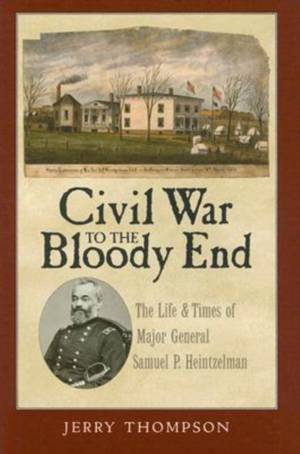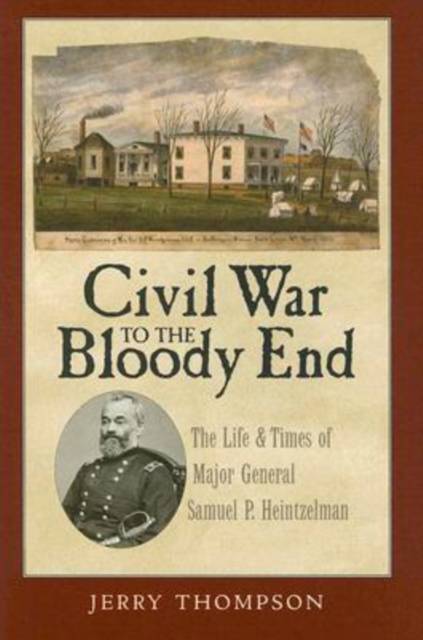
- Retrait gratuit dans votre magasin Club
- 7.000.000 titres dans notre catalogue
- Payer en toute sécurité
- Toujours un magasin près de chez vous
- Retrait gratuit dans votre magasin Club
- 7.000.0000 titres dans notre catalogue
- Payer en toute sécurité
- Toujours un magasin près de chez vous
Civil War to the Bloody End
The Life and Times of Major General Samuel P. Heintzelman
Jerry Thompson
53,45 €
+ 106 points
Description
If president Lincoln could have unmade a general, perhaps he would have started with Samuel Peter "Sourdough" Heintzelman, whose early military successes were overshadowed by repeated Union defeats in the Civil War and his own argumentative nature. Perhaps this personality was the reason Heintzelman once said, "I have no hesitation in leaving my reputation . . . in the hands of the future historian" (Washington Daily National Intelligencer August 9, 1865). On the other hand, perhaps his hindsight told him that his was a life worth studying. By the time his friend Robert E. Lee left Arlington to lead the Rebel army against the bluecoats, Heintzelman had already seen duty in Mexico, established Fort Yuma in California in 1850, mined for silver in Arizona, and ably led U.S. forces on the Texas-Mexico border during the 1859-1960 Cortina War. During the Civil War, he was in the forefront of the fighting at First Bull Run and the disastrous 1862 Peninsula Campaign. He commanded the III Corps of the Army of the Potomac at the siege of Yorktown and in the ferocious fighting at Williamsburg, Fair Oaks, Oak Grove, Savage's Station, Glendale, and Malvern Hill. Although he aspired to succeed General George B. McClellan, he was relieved of his command after his troops were badly mauled at Second Bull Run. After demonstrating his inability to guard the southern approaches to Washington D.C. from Virginia guerillas, he spent the latter part of the war administering prison camps in the Midwest, keeping a watchful eye on Copperhead subversives, and quarreling with more than one disgruntled governor. In early Reconstruction Texas, Heintzelman struggled with the conflict between former Secessionists and Radical Republicans.By mining Heintzelman's massive journals and countless historical archives, Jerry Thompson has not only provided a fascinating account of a frustrated general, but has also given readers a richly textured account of the events, the political crosscurrents, and the times in which "Sourdough" won his unenviable reputation.
Spécifications
Parties prenantes
- Auteur(s) :
- Editeur:
Contenu
- Nombre de pages :
- 443
- Langue:
- Anglais
- Collection :
- Tome:
- n° 9
Caractéristiques
- EAN:
- 9781585445356
- Date de parution :
- 01-10-06
- Format:
- Livre relié
- Format numérique:
- Genaaid
- Dimensions :
- 165 mm x 240 mm
- Poids :
- 929 g

Les avis
Nous publions uniquement les avis qui respectent les conditions requises. Consultez nos conditions pour les avis.






